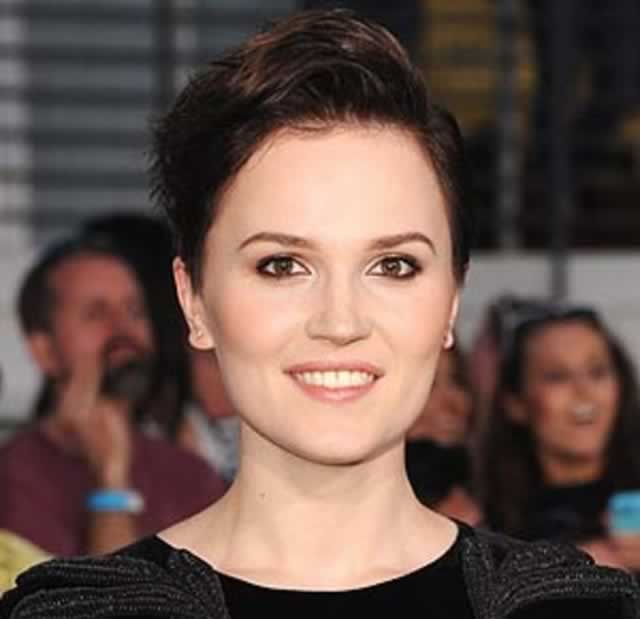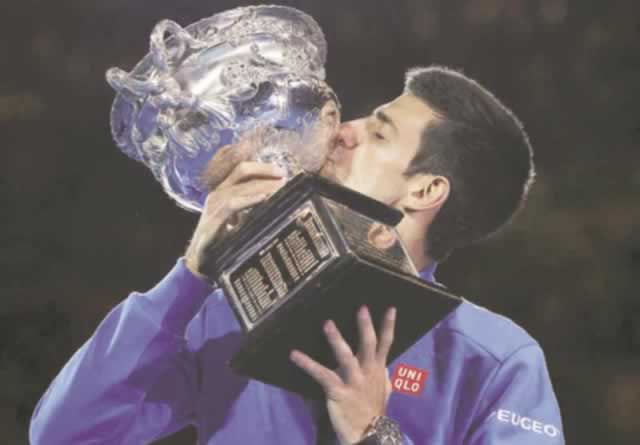Veronica Roth’s ‘Divergent’ universe

Literature Today With Stanely Mushava
Our ancestors determined that the warring world was due to the fault of human personality — of humankind’s inclination toward evil, in whatever form that is
Book: Divergent
Author: Veronica Roth
Publisher: Katherine Tegen Books (2011)
ISBN: 0-06-202402-7
“Divergent”, the stellar debut from Veronica Roth, is a riveting stroke of imagination.
The futuristic novel, along with its sequels “Insurgent”, “Allegiant and Four: A Divergent Collection”, has flared up rave reception and pushed up the bar for exploits in young adult fiction.
Provisional cover art featuring a bottle of Tide on Roth’s blog sometime in 2012 suggested a forthcoming title, “Detergent”, cuing into the young novelist’s lighter side.
But “Divergent” is not as light. It is a window into a dark, embattled world — our own.
A dystopian strand obtaining in a sci-fi setting enables Roth to create at once a far-reaching allegory and spellbinding narrative.
C S Lewis once accused science fiction writers of ushering us through high concepts and cryptic mazes only to deflate back to ordinary experiences.
He asked why they lure us on through galaxies and all when at the end of the journey we find again the familiar stories of betrayal, conspiracy or love.
The “Narnia” storyteller was, of course, an object of his own protest.
But his observation points to how science fiction can be optimised to speak to the great questions of life and meaning.
Roth does as much.
She demonstrates in a stratified post-apocalyptic setting how we have, by partitioning the world into special interest zones, lost touch with each other and the forsaken the love which it is our mandate to observe for all humanity.
The story takes place in a futuristic world branched into five factions of virtue after destruction by war of a previous civilisation.
“Decades ago our ancestors realised that it is not political ideology, religious belief, race, or nationalism that is to blame for a warring world.
“Rather, they determined that it was the fault of human personality — of humankind’s inclination toward evil, in whatever form that is. They divided into factions that sought to eradicate those qualities they believed responsible for the world’s disarray.”
Aggression, ignorance, duplicity, selfishness and cowardice, vices faulted for urging the world to destruction led to the creation, as moral responses, of corresponding factions Amity (Compassion), Erudite (Intelligence), Candor (Honesty), Abnegation (Selflessness) and Dauntless (Bravery).
Remarkably, while the ancestors are right in detecting the trouble with the world to be the inherent flaw of human personality, they unwittingly perpetuate the problem by making the pursuit for virtue a question of exclusive preference.
The cultivation of one virtue in isolation to and at the expense of other virtues is the great problem of history.
Although something in man that answers to the claims of morality, foregrounding some morals to be all that counts and shelving the rest has been the very proxy by which scheming characters have taken command of history and made it the dark thread that it is.
Four notices: “I think we’ve made a mistake . . . We’ve all started to put down the virtues of the other factions in the process of bolstering our own. I don’t want to do that. I want to be brave, and selfless, and smart, and kind, and honest.”
Then outside are the faction-less, hard labourers of dilapidated abodes, with neither enough to eat nor to clothe — a real world scheme of things as the poor are recompensed not so much in proportion to their work but their status.
“There are places where the road has completely collapsed, revealing sewer systems and empty subways that I have to be careful to avoid, and places that stink so powerfully of sewage and trash . . . This is where the faction-less live.”
All too familiar ghetto stories in our circles even as leaders fare sumptuously at a safe remove from the extreme poverty of the masses.
Abnegation’s acts of service and self-renunciation are often directed to them, controversially so because Erudite considers charity to obtain at the expense of the prosperity of the factions.
Self-directed as Erudite conspiracy is, I see reason in questioning the Abnegation-factionless complex.
The former’s benefactor posture over a systematically dis-empowered population is synonymous with the kind of hypocrisy in our world which makes workers and resource-rich vassals of the global capital appear a charity case.
And yet it is them who oil the very levers of power crushing them.
New African’s January issue ran a cover story entitled “Politics of Pity” to that effect.
However, the Erudite alternative is also hopelessly flawed. “Valuing knowledge above all else results in a lust for power, and that leads men into dark and empty places,” the protagonist’s father observes of Erudite.
Born and raised Abnegation, the protagonist Beatrice Prior undergoes an Aptitude Test to determine which of the factions she belongs to.
The test, which it is mandatory for adolescents on the verge of initiation into one of the factions to undergo, presents a problem for Beatrice.
She shows aptitude for three instead of one of the factions, Abnegation, Dauntless and Erudite. She is therefore classified Divergent, a lethal secret promptly covered up by the woman conducting the test.
This strand shows something of the narrow-mindedness of today’s intellectual and professional world. Complicated as the phenomenon called man is, it boggles the mind how much simplistic and bigoted compartmentalisation of people is going on everyday
Beatrice chooses Dauntless, a double-edged thrust into her father’s conceit, her brother, Caleb having, on the same occasion chosen Erudite over Abnegation. Ascendant in Dauntless by virtue of her Divergent make, in spite of a few setbacks, Beatrice (now Tris) falls in love with the student trainer, Four, another concealed Divergent.
Ironic, is it not, what artifices people administer to conceal who they really are so they can fit into a grossly false, intolerant society.
Meanwhile, all-out conflict is afoot between Erudite and Abnegation, with the former faulting the latter’s prioritisation of charity over prosperity and their exclusive entitlement to administration by virtue of their assumed selflessness.
Dauntless leaders yield their community into Erudite mercenaries who, unwittingly subjected to a simulation serum, go on an unthinking slaughter of Abnegation leaders.
Tris escapes, having forfeited the serum because of her Divergence, and joins Four and Caleb on mission to counter the Erudite conspiracy.
In the space of the fast-paced narrative, Roth makes pertinent observations on how the present age is plunging into an unthinkable void even as it is bent on an ostensible trail for widely ratified ideals.
Matthew Arnold in Culture and Anarchy makes the case for integrative refinement, whereby men of culture are the true apostles of equality.
“Culture seeks to do away with classes and sects; to make the best that has been thought and known in the world current everywhere; to make all men live in an atmosphere of sweetness and light, where they may use ideas, as it uses them itself, freely; nourished, and not bound, by them.
Aside the segmentation, Roth points out the great vice of the age: erroneous definition of virtue through interest-coded lenses.
Bravery without selflessness becomes a brutality; power is flaunted over the weak.
Detached from love, bravery becomes the pride of power in force and the darkness is insurmountable.
Roth’s profession of Christianity against the futuristic imagination of her book has directed faith-oriented assessment of her book.
The author rightly demonstrates the futility of piecemeal solutions to the problem of conflict. Roth implies without overtly prescribing an alternative that human nature is hopelessly flawed. It needs bar a divine overhaul.
Personally, my aha moment would have been a recourse to the redemption way. With the influence the book has had that would have been commendable incentive from a creative, young Christian.
To her credit, Roth refrains from dirty passages which virtually run the thread of young adult fiction. At one point, she told The Independent that she did not want to “smut” on the page.
Stanely Mushava blogs at medleycity.wordpress.com










Comments